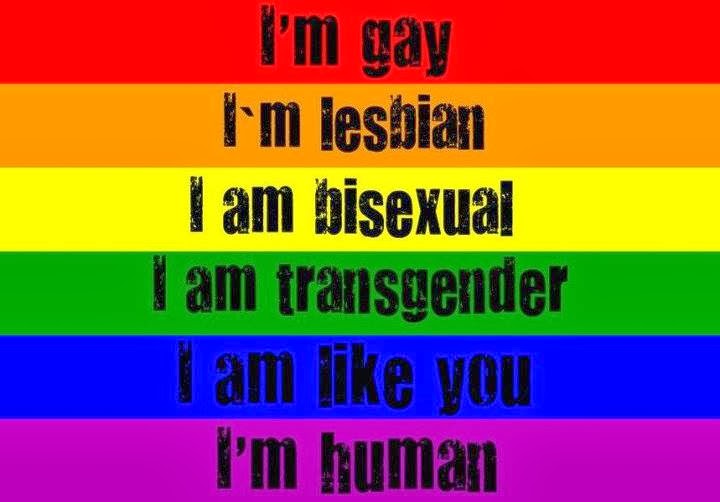Delhi High Court had written a new chapter in the Indian History when it gave primacy to Human Rights and decriminalized homosexuality as an offence within the meaning of Section 377 of the Indian Penal Code. The Hon’ble Supreme Court though made a faux pas and overruled the High Court Judgment thereby criminalizing homosexuality all over again as the judgment of the Supreme Court has a binding effect and becomes the law of the land under Article 141 of the Constitution of India. The enthusiasm of the LGBT Community thus was short lived. Yesterday the Supreme Court reopened the controversial Section 377 dispute and referred it to a Constitution Bench.
In order to uphold the ideals of equality and freedom of sexual orientation, homosexuality should be decriminalized. Here we demolish all the arguments put forth in the Naz Foundation judgment by the Supreme Court and the opponents of homosexuality.
Homosexuality is natural:
The purpose of Section 377 of the IPC is to define and punish unnatural sexual offences. Way back in 1860, when the IPC was enacted homosexuality was considered to be immoral as well as unnatural. Thus, in tune with the times, the Penal Code made a blanket provision and any form of sexual intercourse which was not penile-vaginal in nature was made criminal and thus punishable.
The social taboo though is completely unjustified as studies have shown that whether a person is heterosexual or homosexual depends on his natural orientation and is not a matter of choice. Thus, while unnatural intercourses should be made punishable in the better interest of the society but something that is actually natural should not be defined and made punishable. The Supreme Court can always read into a provision, it does not have to necessarily strike down the whole provision. Therefore, the legal position is that the Supreme Court can decriminalize homosexuality and at the same time Section 377 can remain valid.
Criminalization of Homosexuality is violative of Article 14 and 19 of the Constitution:
Though the Supreme Court denied this contention in the Naz Foundation judgment, legal experts would agree that criminalization of homosexuality is a clear cut violation of the Article 14 of the Constitution of India which guarantees equality and bars discrimination on the basis of gender among many other fronts. Moreover, denial of sexual preference is a crystal clear violation of one’s freedom which is guaranteed under Article 19 of the Constitution of India.
The Supreme Court had in the Naz Foundation Judgment placed the whole of the blame on the Legislature and argued that the legislature can only repeal this archaic provision. This contention though is definitely flawed as Article 13 of the Constitution specifically provides that a pre Constitutional Law in violation of the Fundamental Rights Chapter is void and does not have the force of a valid law.
Homosexuality is not the hotbed of STDs:
This is yet another absurdity on the basis of which homosexuality is opposed. There is no scientific basis to claim that homosexuality is the hotbed of STDs. If at all a great number of homosexuals suffer from HIV AIDS among several other STDs in the Indian context, then it is so because of the fact that the law wrongly considers them to be criminals and they are not in fact able to get sufficient treatment as it will only expose them to social taboos and the clutches of law. Decriminalization of homosexuality is actually a solution for fighting this evil instead of aggravation in the spread of STDs.
Allowing Homosexuality will not give rise to an unnatural society:
The argument that homosexuality will give rise to an unnatural society is based on the premise that homosexuality itself is unnatural. When the fact that homosexuality is natural is proved in itself, then a greater number of people coming out and accepting their sexual orientation is only going to make the society transparent and more natural than unnatural.
Conclusion:
Whatever judgment the Supreme Court gives, it will be subject to criticism and ridicule. If it gives a judgment against the interest of homosexuals it will be subject to rational criticism by legal experts but if it gives a judgment in their favor it will subject to irrational and vague criticism by conservationists.
A great many countries have legalized homosexuality in the last two decades. In fact, staunch catholic societies too have accepted homosexualities that were initially against homosexuality. In India on the other hand there is no real religious and historic sanction against homosexuality. In fact Indian history gives several instances of homosexuality and only gives an argument to validate it.
The threshold for changing a law should not be whether the society is ready for it or not but to ready the society for accepting something legitimate. The fact that sections of society are not ready to see someone else expressing their sexual identity is not a valid argument to deny freedom and discriminate against the LGBT community. The reopening of this case is a golden opportunity for the Supreme Court of India to correct its past wrongs.
